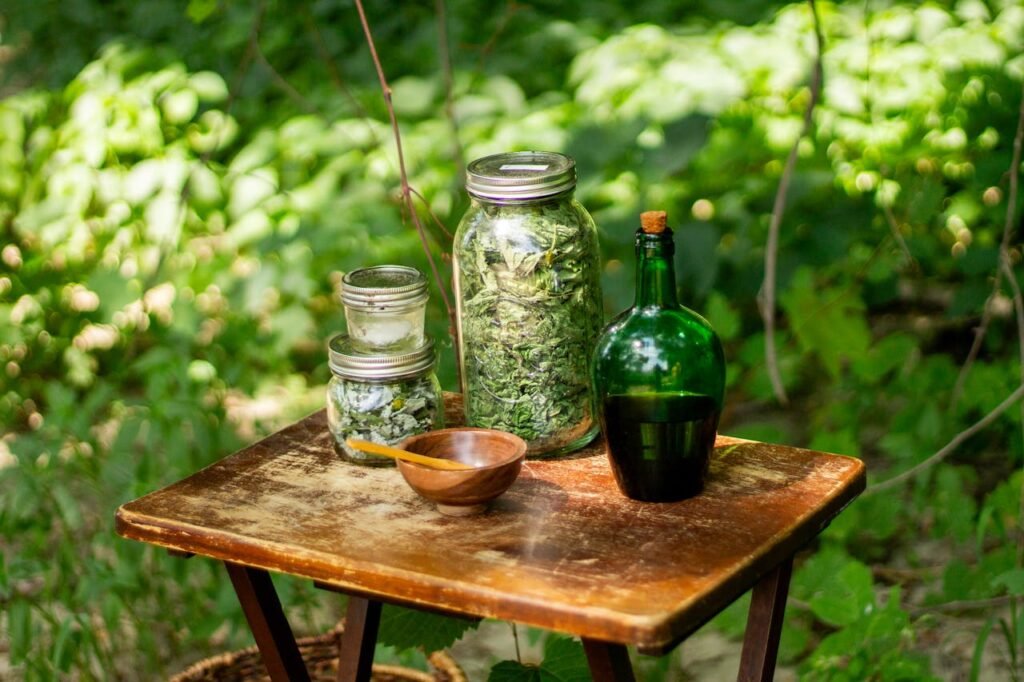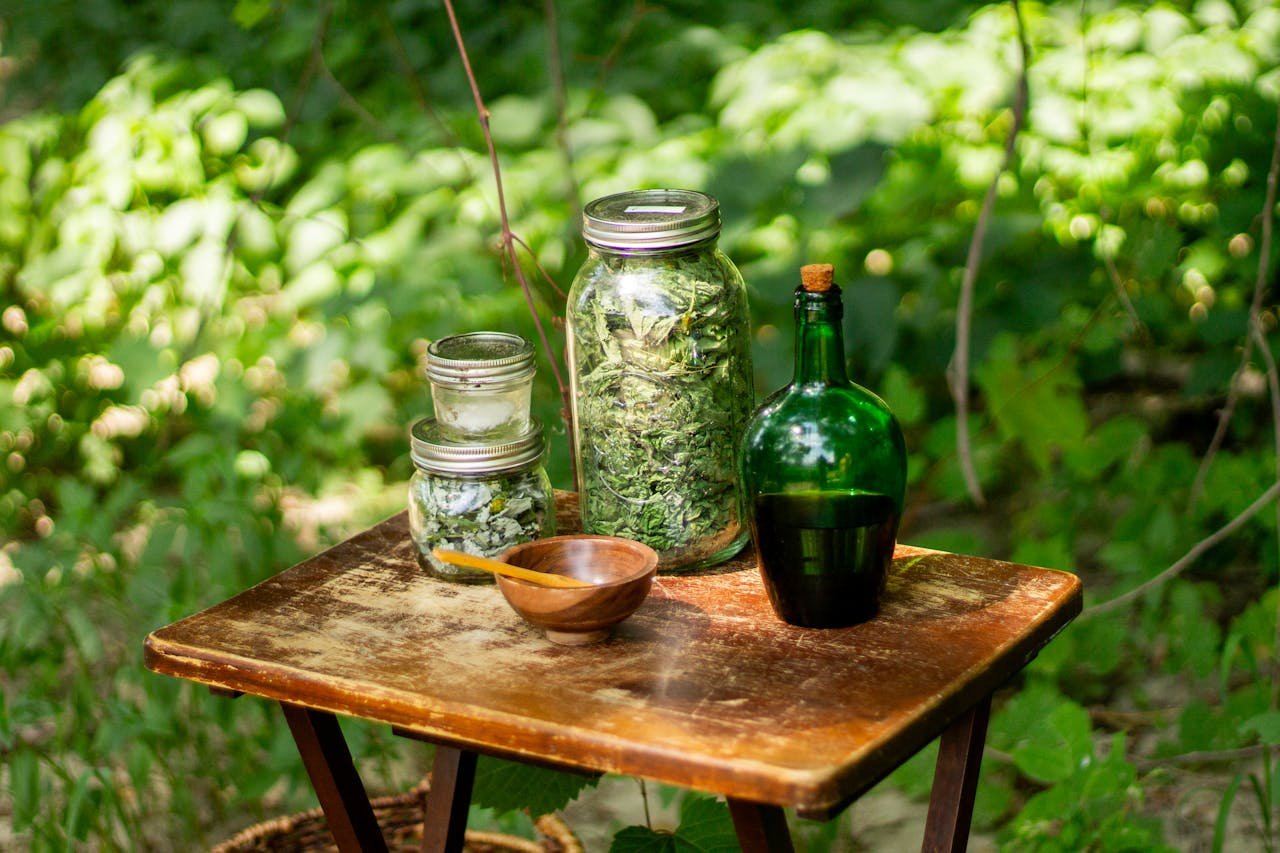Herbal remedies have been used for centuries to treat various skin conditions, including acne. They offer a natural and holistic approach to skincare, utilizing the healing properties of plants to combat breakouts and promote overall skin health. Unlike conventional treatments that may have side effects, herbal remedies can be gentle yet effective.
Incorporating herbs into your daily routine, whether through teas, tonics, or topical applications, can provide your skin with essential nutrients and antioxidants. Let’s delve into some of the most effective herbal remedies for acne and how they can help you achieve a clearer complexion.

1. Green Tea: The Antioxidant Powerhouse
Green tea is rich in antioxidants, particularly catechins, which have been shown to reduce inflammation and fight bacteria. Drinking green tea and applying it topically can help to reduce acne and improve skin health.
Benefits of Green Tea for Acne
- Anti-inflammatory: Green tea helps to reduce the redness and swelling associated with acne.
- Antioxidant-rich: It neutralizes free radicals that can damage the skin and exacerbate acne.
- Oil Control: Green tea can help regulate sebum production, reducing the likelihood of clogged pores.
How to Use Green Tea
- Drink It: Consuming 1-2 cups of green tea daily can provide your body with antioxidants that help fight acne from the inside out.
- Topical Application: Brew a cup of green tea, let it cool, and use a cotton ball to apply it to your face as a toner.
Studies have shown that both oral and topical green tea can significantly improve mild to moderate acne.
2. Aloe Vera: The Soothing Healer
Aloe vera is well-known for its soothing and healing properties, making it an excellent herbal remedy for acne. It contains anti-inflammatory and antibacterial compounds that help reduce acne lesions and promote skin healing.
Aloe Vera Benefits for Acne
- Anti-inflammatory: Aloe vera reduces inflammation and redness, providing relief from painful acne lesions.
- Antibacterial: It helps to kill acne-causing bacteria on the skin’s surface.
- Healing Properties: Aloe vera promotes the healing of acne scars and encourages skin regeneration.
Usage Tips
- Direct Application: Apply fresh aloe vera gel directly to the affected areas to soothe and heal acne.
- Aloe Vera Toner: Mix aloe vera gel with a few drops of tea tree oil to create a natural acne-fighting toner.
Aloe vera is suitable for all skin types, including sensitive skin, and can be used daily for the best results.
3. Witch Hazel: The Natural Astringent
Witch hazel is a popular natural astringent that helps to reduce inflammation, tighten pores, and control excess oil production. It’s derived from the bark and leaves of the witch hazel plant and is commonly used in skincare for its soothing properties.
Witch Hazel Benefits
- Astringent: It tightens the skin and reduces the size of pores, preventing future breakouts.
- Anti-inflammatory: Witch hazel helps to reduce redness and swelling associated with acne.
- Oil Control: It balances oil production, preventing the skin from becoming too oily.
How to Use Witch Hazel
- As a Toner: Apply witch hazel to a cotton pad and gently wipe it over your face after cleansing.
- Spot Treatment: Use it as a spot treatment on active breakouts to reduce inflammation and speed up healing.
Witch hazel is a gentle yet effective herbal remedy that can be incorporated into your daily skincare routine.
4. Chamomile Tea: The Calming Elixir
Chamomile is known for its calming and anti-inflammatory properties, making it an excellent remedy for soothing irritated skin and reducing acne. Drinking chamomile tea and using it topically can help to calm inflamed skin and promote healing.
Chamomile Tea Benefits for Acne
- Anti-inflammatory: Chamomile tea reduces inflammation and redness, making it beneficial for treating acne and rosacea.
- Antioxidant: It contains antioxidants that help protect the skin from environmental damage and reduce the appearance of acne scars.
- Soothing: Chamomile has a soothing effect on the skin, helping to reduce irritation and redness.
How to Use Chamomile for Acne
- Drink It: Consuming chamomile tea can help reduce stress and inflammation, which are common triggers for acne.
- Topical Application: Brew chamomile tea, let it cool, and use it as a soothing facial toner.
Chamomile is gentle enough for all skin types and can be used both internally and externally for maximum benefits.
5. Neem: The Antibacterial Healer
Neem has been used in Ayurvedic medicine for centuries due to its potent antibacterial and anti-inflammatory properties. It’s highly effective in treating acne and preventing future breakouts.
Neem Benefits for Acne
- Antibacterial: Neem kills acne-causing bacteria on the skin’s surface, reducing the risk of new breakouts.
- Anti-inflammatory: It helps to reduce the redness and swelling of acne lesions.
- Healing: Neem promotes wound healing and reduces the appearance of scars and dark spots.
How to Use Neem
- Neem Oil: Apply neem oil directly to acne lesions as a spot treatment.
- Neem Tea: Boil neem leaves in water, let it cool, and use it as a facial rinse or toner.
Neem is a powerful herb that can help combat acne from the root, providing both immediate and long-term benefits.
6. Burdock Root: The Detoxifying Herb
Burdock root is known for its detoxifying properties, making it an excellent herbal remedy for acne. It helps to purify the blood and eliminate toxins that can lead to breakouts.
Burdock Root Benefits
- Detoxifying: Burdock root helps to cleanse the blood and eliminate toxins, reducing the occurrence of acne.
- Anti-inflammatory: It reduces inflammation and redness, promoting clearer skin.
- Antibacterial: Burdock root contains compounds that kill acne-causing bacteria.
Usage Instructions
- Burdock Tea: Drink burdock root tea daily to help detoxify your body and promote clearer skin.
- Topical Application: Apply burdock root extract directly to the skin or mix it with a carrier oil for spot treatment.
Burdock root is a holistic remedy that addresses acne from the inside out, making it a valuable addition to your skincare routine.
Conclusion
Herbal remedies offer a natural and effective approach to treating acne, harnessing the power of plants to soothe, heal, and protect the skin. Whether you choose to drink herbal teas, apply tonics, or use herbal extracts topically, these remedies can help you achieve a clearer complexion without the harsh side effects of conventional treatments.
Consistency is key when using herbal remedies, so be patient and give your skin time to respond to these natural treatments. By incorporating herbs into your daily routine, you can enjoy the benefits of nature’s healing properties and achieve healthier, clearer skin.
External Links:









